-
 Bitcoin
Bitcoin $84,475.2276
-1.11% -
 Ethereum
Ethereum $1,577.9509
-1.75% -
 Tether USDt
Tether USDt $1.0000
0.01% -
 XRP
XRP $2.0557
-1.39% -
 BNB
BNB $589.1289
-0.05% -
 Solana
Solana $137.1836
-1.85% -
 USDC
USDC $1.0000
0.02% -
 TRON
TRON $0.2453
1.27% -
 Dogecoin
Dogecoin $0.1541
-2.57% -
 Cardano
Cardano $0.6153
-1.47% -
 Chainlink
Chainlink $13.1555
2.91% -
 UNUS SED LEO
UNUS SED LEO $9.3294
0.22% -
 Avalanche
Avalanche $19.4997
-1.28% -
 Toncoin
Toncoin $2.9930
0.44% -
 Stellar
Stellar $0.2419
-1.44% -
 Shiba Inu
Shiba Inu $0.0...01236
1.47% -
 Hedera
Hedera $0.1637
-1.21% -
 Sui
Sui $2.1026
-2.09% -
 Bitcoin Cash
Bitcoin Cash $333.9424
-1.13% -
 Polkadot
Polkadot $3.8670
3.71% -
 Hyperliquid
Hyperliquid $17.3073
-4.38% -
 Litecoin
Litecoin $76.2492
0.30% -
 Dai
Dai $1.0000
0.02% -
 Bitget Token
Bitget Token $4.3921
-3.74% -
 Ethena USDe
Ethena USDe $0.9993
0.02% -
 Pi
Pi $0.6235
-4.49% -
 Monero
Monero $215.7578
1.51% -
 Uniswap
Uniswap $5.2205
-0.73% -
 Pepe
Pepe $0.0...07454
2.77% -
 Aptos
Aptos $4.9948
3.69%
Will DigiFinex contract margin be refunded?
In the event of platform issues or system errors, DigiFinex may issue margin refunds to eligible traders who incur losses due to no fault of their own.
Nov 26, 2024 at 11:16 am

Will DigiFinex Contract Margin Be Refunded?
1. Understanding Contract Margin on DigiFinex
On DigiFinex, traders can utilize contract margin to amplify their trading positions and potentially enhance profits. By leveraging margin, traders borrow additional funds from the exchange, allowing them to trade with larger capital than they initially deposited.
Contract margin is typically expressed as a ratio, such as 10x or 20x. A 10x margin, for example, means that a trader can control a position worth up to ten times their deposited margin. This leverage magnifies potential gains but also amplifies potential losses.
2. Circumstances Leading to Margin Refund
In certain circumstances, DigiFinex may initiate a margin refund to traders. This is primarily done in the event of unforeseen platform issues or system errors that result in traders losing funds due to no fault of their own.
For instance, if a technical glitch occurs during a trading session, causing traders to enter or exit positions at significantly unfavorable prices, the exchange may consider issuing margin refunds to mitigate potential losses incurred by users.
3. Eligibility for Margin Refund
Not all traders are eligible for margin refunds. Typically, refunds are only issued to traders who can demonstrate that their losses were directly caused by platform issues or system errors beyond their control.
Traders seeking margin refunds must provide detailed evidence of the errors encountered, such as screenshots or trading logs. The exchange will review the evidence and make a determination on eligibility.
4. Process for Claiming Margin Refund
Traders who believe they are eligible for a margin refund should contact DigiFinex support promptly. Detailed instructions on submitting a request for review will be provided by the support team.
In the request, traders must clearly outline the circumstances surrounding their losses and provide supporting documentation. Incomplete or insufficient documentation may delay or hinder the review process.
5. Resolution Timeline and Payment
The time taken for DigiFinex to resolve margin refund requests varies depending on the complexity of the case. The exchange will endeavor to process requests as efficiently as possible.
If a trader's request for a margin refund is approved, the refund amount will be credited to their DigiFinex account. The timeframe for payment will be communicated to the trader during the resolution process.
6. Additional Considerations
It is important to note that margin refunds are not guaranteed and are granted at the sole discretion of DigiFinex. The exchange may consider factors such as the severity of the loss, the impact on the trader, and the overall circumstances of the incident.
Traders should carefully review the terms and conditions of contract margin trading on DigiFinex to ensure they fully understand the risks involved and the potential for margin refunds.
Disclaimer:info@kdj.com
The information provided is not trading advice. kdj.com does not assume any responsibility for any investments made based on the information provided in this article. Cryptocurrencies are highly volatile and it is highly recommended that you invest with caution after thorough research!
If you believe that the content used on this website infringes your copyright, please contact us immediately (info@kdj.com) and we will delete it promptly.
- XRP Gains Traction as a Payment Option in Latin America, New Statistics Show
- 2025-04-20 23:25:15
- PancakeSwap's CAKE Token Is Up Over 30% This Month
- 2025-04-20 23:25:15
- Metaplanet's Bitcoin Strategy Has Shook Up the Market by Adding Another 150 BTC to Its Treasury
- 2025-04-20 23:25:13
- Render (RNDR) price prediction: Will the altcoin climb higher from the $3 demand zone?
- 2025-04-20 23:25:13
- XRP and bitcoin (BTC) price action resembles a compressed spring
- 2025-04-20 23:15:14
- Retail Investors Have Been Unwinding Their Crypto Positions
- 2025-04-20 23:15:14
Related knowledge
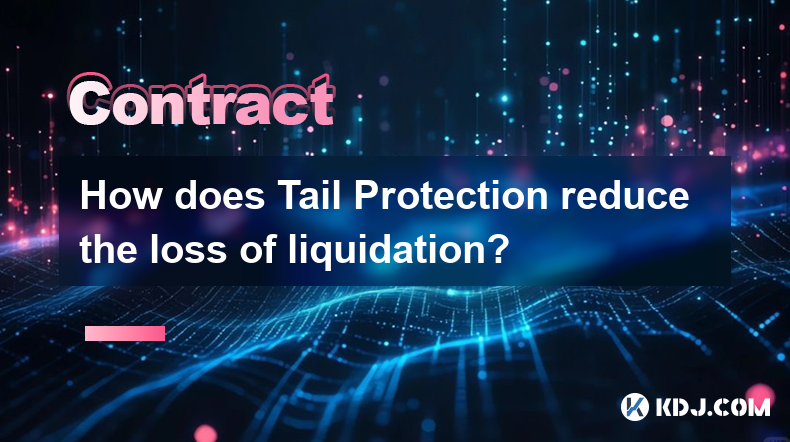
How does Tail Protection reduce the loss of liquidation?
Apr 11,2025 at 01:50am
Introduction to Tail Protection in CryptocurrencyTail Protection is a mechanism designed to mitigate the risks associated with liquidation in cryptocurrency trading. Liquidation occurs when a trader's position is forcibly closed by the exchange due to insufficient margin to cover potential losses. This often happens in leveraged trading, where traders b...
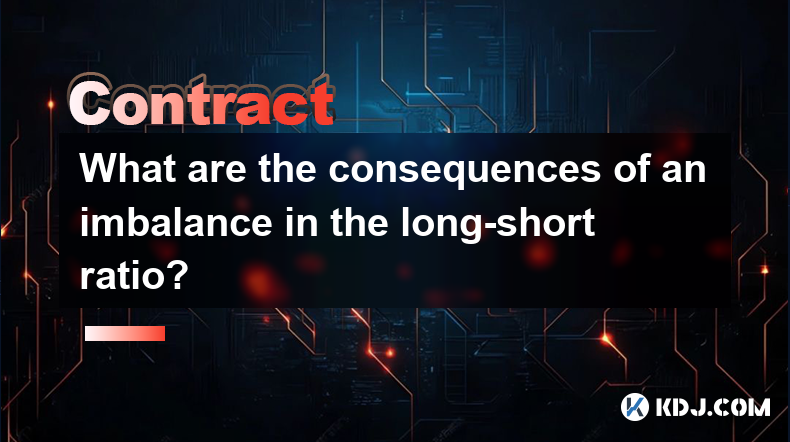
What are the consequences of an imbalance in the long-short ratio?
Apr 13,2025 at 02:50pm
The long-short ratio is a critical metric in the cryptocurrency trading world, reflecting the balance between bullish and bearish sentiments among traders. An imbalance in this ratio can have significant consequences on the market dynamics, affecting everything from price volatility to trading strategies. Understanding these consequences is essential fo...
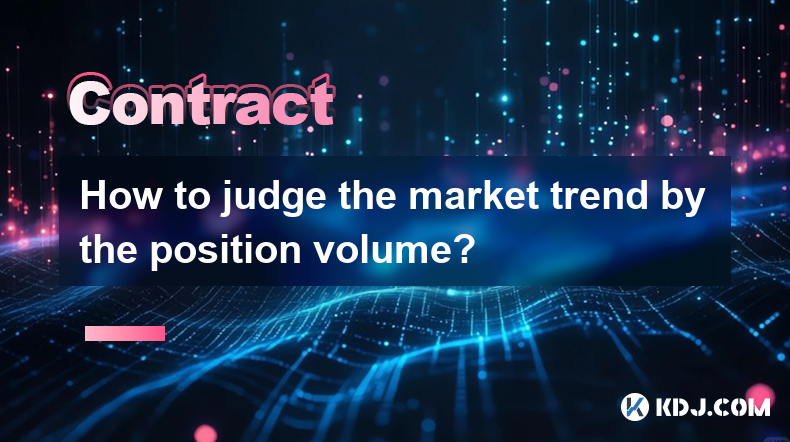
How to judge the market trend by the position volume?
Apr 11,2025 at 02:29pm
Understanding how to judge the market trend by position volume is crucial for any cryptocurrency trader. Position volume, which refers to the total number of open positions in a particular cryptocurrency, can provide valuable insights into market sentiment and potential price movements. By analyzing this data, traders can make more informed decisions ab...

Why does a perpetual contract have no expiration date?
Apr 09,2025 at 08:43pm
Perpetual contracts, also known as perpetual futures or perpetual swaps, are a type of derivative product that has gained significant popularity in the cryptocurrency market. Unlike traditional futures contracts, which have a fixed expiration date, perpetual contracts do not expire. This unique feature raises the question: why does a perpetual contract ...
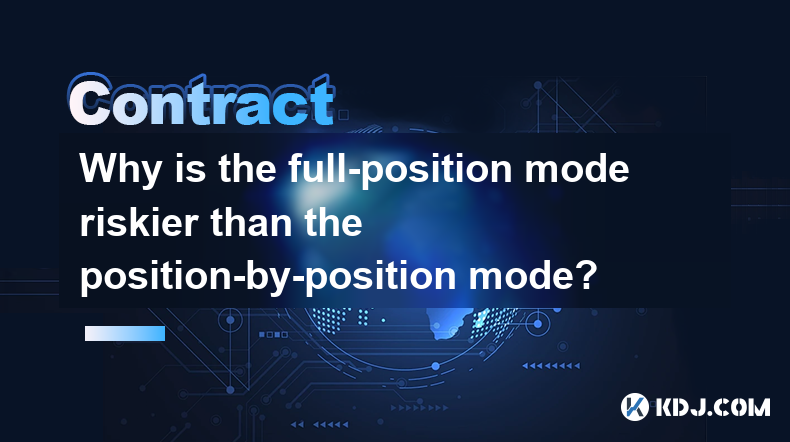
Why is the full-position mode riskier than the position-by-position mode?
Apr 13,2025 at 03:42pm
Why is the Full-Position Mode Riskier Than the Position-by-Position Mode? In the world of cryptocurrency trading, the choice between full-position mode and position-by-position mode can significantly impact the risk profile of a trader's portfolio. Understanding the differences between these two modes is crucial for making informed trading decisions. Th...
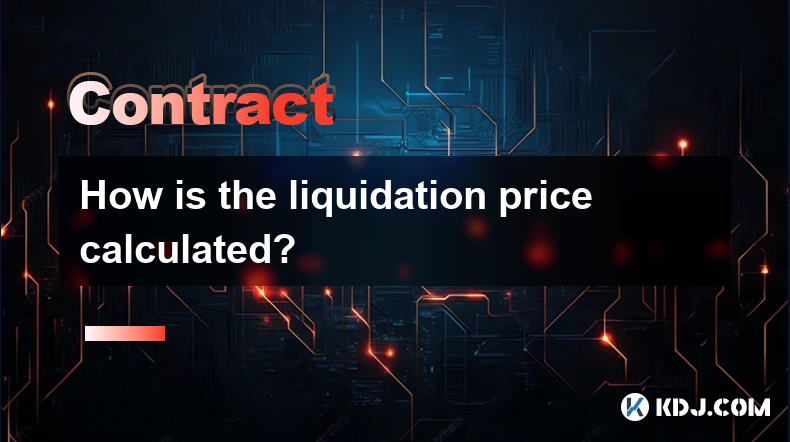
How is the liquidation price calculated?
Apr 12,2025 at 01:35am
Introduction to Liquidation PriceLiquidation price is a critical concept in the world of cryptocurrency trading, particularly when dealing with leveraged positions. Understanding how this price is calculated is essential for traders to manage their risk effectively. The liquidation price is the point at which a trader's position is forcibly closed by th...

How does Tail Protection reduce the loss of liquidation?
Apr 11,2025 at 01:50am
Introduction to Tail Protection in CryptocurrencyTail Protection is a mechanism designed to mitigate the risks associated with liquidation in cryptocurrency trading. Liquidation occurs when a trader's position is forcibly closed by the exchange due to insufficient margin to cover potential losses. This often happens in leveraged trading, where traders b...

What are the consequences of an imbalance in the long-short ratio?
Apr 13,2025 at 02:50pm
The long-short ratio is a critical metric in the cryptocurrency trading world, reflecting the balance between bullish and bearish sentiments among traders. An imbalance in this ratio can have significant consequences on the market dynamics, affecting everything from price volatility to trading strategies. Understanding these consequences is essential fo...

How to judge the market trend by the position volume?
Apr 11,2025 at 02:29pm
Understanding how to judge the market trend by position volume is crucial for any cryptocurrency trader. Position volume, which refers to the total number of open positions in a particular cryptocurrency, can provide valuable insights into market sentiment and potential price movements. By analyzing this data, traders can make more informed decisions ab...

Why does a perpetual contract have no expiration date?
Apr 09,2025 at 08:43pm
Perpetual contracts, also known as perpetual futures or perpetual swaps, are a type of derivative product that has gained significant popularity in the cryptocurrency market. Unlike traditional futures contracts, which have a fixed expiration date, perpetual contracts do not expire. This unique feature raises the question: why does a perpetual contract ...

Why is the full-position mode riskier than the position-by-position mode?
Apr 13,2025 at 03:42pm
Why is the Full-Position Mode Riskier Than the Position-by-Position Mode? In the world of cryptocurrency trading, the choice between full-position mode and position-by-position mode can significantly impact the risk profile of a trader's portfolio. Understanding the differences between these two modes is crucial for making informed trading decisions. Th...

How is the liquidation price calculated?
Apr 12,2025 at 01:35am
Introduction to Liquidation PriceLiquidation price is a critical concept in the world of cryptocurrency trading, particularly when dealing with leveraged positions. Understanding how this price is calculated is essential for traders to manage their risk effectively. The liquidation price is the point at which a trader's position is forcibly closed by th...
See all articles























































































